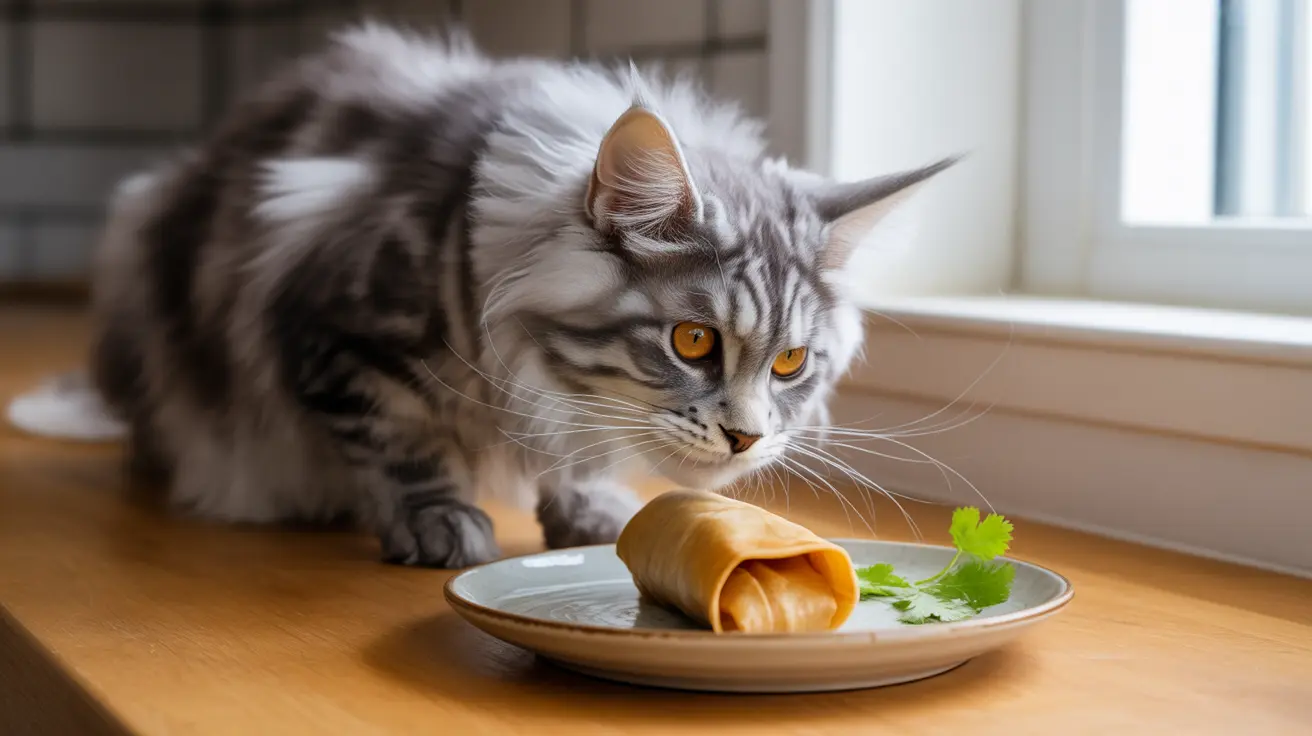If you've ever enjoyed tamales and wondered whether you can share this delicious Latin American dish with your feline friend, you're not alone. While it might be tempting to offer your cat a taste of this traditional treat, veterinary experts strongly advise against feeding tamales to cats.
In this comprehensive guide, we'll explore why tamales are unsuitable for cats, identify potentially dangerous ingredients, and provide safe alternatives for treating your feline companion. Understanding these risks is crucial for maintaining your cat's health and well-being.
Why Tamales Are Unsafe for Cats
Tamales contain several ingredients that can be harmful or even toxic to cats. The combination of corn-based masa, lard, seasonings, and various fillings creates a dish that's particularly problematic for feline consumption.
Dangerous Ingredients in Tamales
The most concerning components include:
- Onions and garlic (fresh or powdered)
- High sodium content from seasonings
- Spices that can irritate the digestive system
- Corn husks that pose choking hazards
- Potentially toxic fillings like raisins in sweet varieties
The Toxic Effects of Allium Plants
Onions and garlic, which belong to the allium family, are particularly dangerous for cats. Even small amounts can cause hemolytic anemia, where red blood cells are destroyed faster than the body can replace them. Just 1/8 teaspoon of garlic powder can trigger symptoms in cats.
Nutritional Concerns for Cats
Cats are obligate carnivores, meaning they require a diet primarily composed of meat. Tamales fail to meet these dietary requirements in several ways:
- High carbohydrate content from masa dough
- Excessive fat from lard and meat fillings
- Imbalanced protein-to-carb ratio
- Unnecessary calories that can lead to obesity
Immediate Health Risks
When cats consume tamales, they may experience various adverse reactions:
- Gastrointestinal upset (vomiting and diarrhea)
- Digestive blockages from corn husks
- Pancreatitis from high fat content
- Dehydration due to sodium content
- Allergic reactions to ingredients
What to Do If Your Cat Eats Tamales
If your cat has consumed tamales, take these immediate steps:
- Remove any remaining tamales
- Monitor for unusual symptoms
- Contact your veterinarian if you notice:
- Lethargy
- Vomiting
- Pale gums
- Difficulty breathing
- Loss of appetite
Safe Alternatives for Cats
Instead of tamales, consider these veterinarian-approved treats:
- Small pieces of plain cooked chicken
- Commercially produced cat treats
- Tiny portions of cooked fish (no seasonings)
- Fresh water-packed tuna (occasional treat)
Frequently Asked Questions
Can cats safely eat tamales or any part of them like the corn husk or filling?
No, cats should not eat any part of tamales. The corn husks can cause choking or intestinal blockages, while the fillings often contain toxic ingredients or inappropriate nutrients for cats.
What toxic ingredients in tamales should cat owners be aware of and why are they dangerous?
The main toxic ingredients include onions and garlic (which can cause anemia), excessive salt (leading to sodium poisoning), and spices that can irritate the digestive system. Some sweet tamales may contain raisins, which are also toxic to cats.
What health problems can occur if a cat eats tamales containing onions, garlic, or raisins?
Cats may develop hemolytic anemia from onions and garlic, which damages red blood cells. Other problems include gastrointestinal distress, dehydration, and potential kidney damage from raisins.
How should I respond if my cat accidentally eats tamale ingredients or corn husks?
Monitor your cat closely for signs of distress and contact your veterinarian immediately if you notice any concerning symptoms. Keep track of how much and what parts of the tamale were consumed.
What are safe and healthy treat alternatives to tamales that I can give my cat?
Safe alternatives include commercial cat treats, small pieces of plain cooked meat (chicken, turkey, or fish) without seasonings, and specially formulated feline treats from pet stores.
Conclusion
While tamales are a beloved human food, they're not safe for feline consumption. The risks of toxicity, digestive issues, and nutritional imbalances make them inappropriate for cats. Instead, stick to veterinarian-approved foods and treats designed specifically for feline dietary needs.
Remember, when it comes to treating your cat, it's always better to err on the side of caution and choose options specifically formulated for feline consumption. Your cat's health and safety should always come first.






